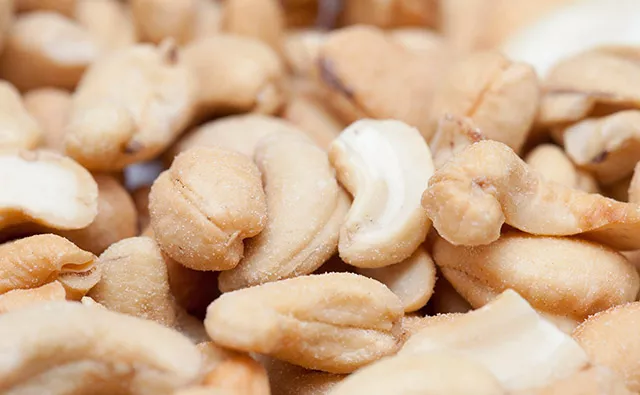Industry News, Coatings
Bio-based anti-corrosive and anti-bacterial coating

Industry News, Coatings

Credit source of featured pic from “freefoodphotos.com”
A new study highlights the potential of a bio-based precursor i.e., cardanol for synthesising solventless coating systems for corrosion inhibition. Initially, prepolymer resin was synthesized from cardanol and was later reacted with toluene diisocyanate (TDI) in different wt% (10, 15, 20, and 25) to obtain an ambient cured polyurea (ACPUrea) resin. Test results reveal that ACPUrea3 coatings performed better than their other counterparts and 20 wt% TDI is the optimal amount required to fabricate mechanically durable, thermally resistant (>250 °C), hydrophobic, and chemically stable coatings. X-ray diffraction and field emission scanning electron microscopy techniques confirmed the amorphous nature and rough morphology of ACPUrea coating.
The bactericidal activities of ACPUrea coatings were also evaluated by standard methods against various gram-positive and gram-negative bacteria, no bacterial growth was observed on and underneath these coatings. Electrochemical impedance spectroscopy suggested outstanding corrosion inhibition efficacy (82 %) of ACPUrea3 coating in harsh corrosive environments. Furthermore, the impedance value observed from the Nyquist plot was found to be steady throughout 15 days of immersion. The overall study emphasises the utilisation of cardanol for synthesising polyurea coatings with higher thermal stability, excellent corrosion resistance, and strong bactericidal properties.
The study has been published in Progress in Organic Coatings, Volume 182, September 2023.
https://doi.org/10.1016/j.porgcoat.2023.107638
Present work obviates the demand for petroleum products from the coating industry. The current study highlights the potential of bio-based precursor i.e., cardanol for synthesizing solventless coating systems for corrosion inhibition. Initially, prepolymer resin was synthesized from cardanol and was later reacted with toluene diisocyanate (TDI) in different wt% (10, 15, 20, and 25) to obtain an ambient cured polyurea (ACPUrea) resin. The structure of ACPUrea resin was confirmed with the help of FTIR and NMR spectral techniques. The impact of TDI percentage on the coating performance was evaluated in terms of curing behavior, standard phyisco-mechanical characteristics, thermal stability, and chemical resistance as well as wetting behavior. It reveals ACPUrea3 coatings performed better than their other counterparts and 20 wt% TDI is the optimal amount required to fabricate mechanically durable, thermally resistant (>250 °C), hydrophobic (contact angle: 138o), and chemically stable coatings. X-ray diffraction and field emission scanning electron microscopy techniques confirmed the amorphous nature and rough morphology of ACPUrea coating. The bactericidal activities of ACPUrea coatings were also evaluated by standard methods against various gram-positive and gram-negative bacteria, no bacterial growth was observed on and underneath these coatings. Electrochemical impedance spectroscopy suggested outstanding corrosion inhibition efficacy (82 %) of ACPUrea3 coating in harsh corrosive environments. Furthermore, the impedance value observed from the Nyquist plot was found to be steady throughout 15 days of immersion. The overall study emphasizes the utilization of cardanol for synthesizing polyurea coatings with higher thermal stability, excellent corrosion resistance, and strong bactericidal properties.
Four different compositions of polyurea resins were successfully synthesized by acid-catalyzed condensation polymerization between cardanol, formaldehyde, and urea followed by addition polymerization with TDI (10–25 wt%). It was revealed that TDI wt% considerably influenced curing temperature, physico-mechanical, thermal, and wetting behavior along with the chemical resistance performance of the coatings. Ambient cured ACPUrea3 system (with 20 wt% TDI) performed best in every aspect including